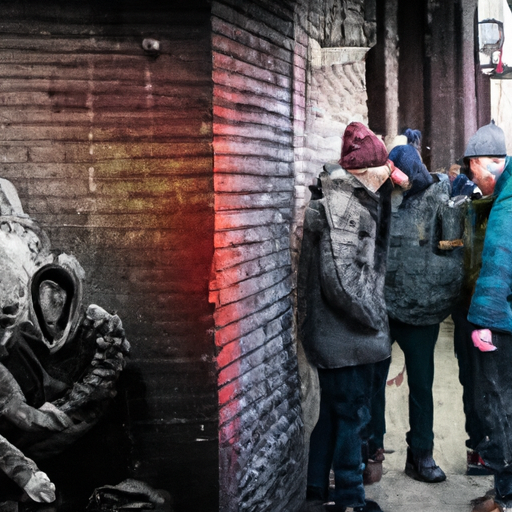Addressing the Intersecting Crises of Homelessness and Opioids in Ontario
There is a pressing need for immediate attention and action towards Ontario’s intersecting problems of homelessness and the opioid crisis. As noted in a recent article published in TVO.org, local municipalities are urging the provincial government to lend additional resources, support, and strategic direction to tackle these ongoing emergencies.
The Opioids Crisis and its Impacts on Homelessness
In the wake of the opioid crisis, Ontario, like many other regions, has seen a dramatic increase in overdose deaths. The situation is exasperated further by the province’s homelessness problem, which amplifies difficulty in providing adequate healthcare and harm reduction services to the most vulnerable populations. This intersection of homelessness and opioids has potentiated a problem significantly impacting economic productivity, public safety, and health infrastructure.
Opioids and Homelessness – Complex and Inextricably Linked
The relationship between opioid addiction and homelessness is complex and multifaceted. People experiencing homelessness often turn to substance use as a coping mechanism for the harsh realities of their lives. On the flip side, people struggling with substance use often find themselves unable to maintain stable housing due to the financial strain and social stigma associated with addiction.
The Response to the Crises
In the face of these pressing issues, municipalities in Ontario are calling for decisive actions from the provincial government. Proposed solutions include formal recognition of homelessness as a crisis, increased funding for affordable housing and harm reduction services, and greater support for opioid class action lawsuits against pharmaceutical companies that downplayed the addictiveness of these drugs.
Investments in Affordable Housing
One of the key propositions is increased investment in affordable housing. The lack of affordable housing options has been identified as a core factor contributing to the homelessness crisis. Investing in affordable housing is a crucial step in addressing homelessness, allowing individuals to secure a stable living environment, which can facilitate and support recovery from substance use disorder.
Robust Harm Reduction Services
Ontario communities are also advocating for robust harm reduction strategies, including expanded access to naloxone, a life-saving medication that can reverse an opioid overdose and supervised consumption sites, which provide healthcare professionals’ safe spaces for people who use drugs.
Opioid Class Action Lawsuits
Several municipalities are involved in opioid class action lawsuits against big pharmaceutical companies. These lawsuits aim to hold companies accountable for their role in the opioid crisis, with the hope that any resulting financial settlements can be used to fund addiction services.
Key takeaways
- Ontario is in the throes of intersecting crises of homelessness and opioids.
- Municipalities are urging the provincial government for more robust action and support.
- The proposed solutions involve increased investments in affordable housing, robust harm reduction services, and backing opioid class action lawsuits.
- Implementation of these strategies would represent significant steps towards mitigating the devastating impacts of these interlinked crises.
Reflection on the Road Ahead
To unravel the complexities of the opioid crisis and homelessness, strategic investments and policy changes are required at all levels of government. The situation in Ontario, while challenging, also presents opportunities for governments, public health agencies, and community organizations to strengthen cooperation and coordination in addressing these pressing issues.
The growing calls from municipalities for increased and targeted action underscores the urgency of the situation. Given the intertwined nature of homelessness and the opioid crisis, solutions must be multidimensional and holistic, acknowledging and addressing the variety of factors that contribute to and stem from these crises.
At the heart of tackling the opioid crisis lies the need to foster healthier communities, promote social inclusion, and mitigate social determinants of health like homelessness. Only through a multi-pronged approach that prioritizes human rights, health, and social equity can we unravel and address the complex interplay of factors that have culminated in the crises of today.
